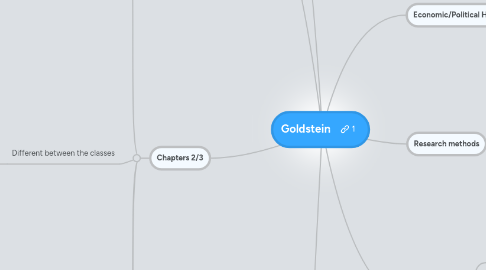
1. Culture
1.1. avoid presentation of culture of poverty
2. Chapters 2/3
2.1. Life as lower class
2.1.1. Large families that are very dependent upon each other
2.1.2. All members have to contribute
2.1.3. Dark skin is seen as ugly since that signifies working out in the sun
2.1.3.1. Different colours of the different races have different roles
2.1.4. Males tend to lack role models
2.1.4.1. leads to gang life, selling drugs
2.1.5. females are domestic workers but may also wind up in the sex industry
2.1.5.1. the idea that the only way for upwards mobility is through seducing older men for their money and status
2.2. Different between the classes
2.2.1. Upper class has servants
2.2.2. Middle class is the one that employs lower class
2.2.2.1. feels they are just above lower class due to being the employer
2.2.2.2. have the mind set that people are dependent upon them
2.2.2.3. the jobs that are more basic are fulfilled for them by the lower class
2.2.3. Lower class are the foot soldiers and workers
2.2.3.1. Lower class tends to be domestic
2.2.3.1.1. Similar to slavery
2.2.3.2. provides the upper classes with an identity since they are lower than the others
2.2.3.3. money is usually more important than school and education
2.2.4. Discrimination
2.2.4.1. domestic work is usually easiest to get
2.2.4.1.1. Boa Aparencia
2.2.4.1.2. but usually lower wages
2.2.4.2. housing was usually split to prevent mixing of the help and the owners
2.3. Money
2.3.1. 6 day work weeks that begins at 5:30 and usually lasts 14 hours
2.3.2. example: gloria was paid 6 dollars a day
2.3.3. workers who live with their employers can only work that one job while others who live out on their own are able to supplement their income
2.3.4. payments are usually on a regular basis
2.4. Race
2.4.1. those of a mixed race were often treated poorly due to their heritage
2.4.1.1. rape was a large contributor to mixed race
2.4.1.1.1. masters would fulfill their fantasies out on black or mixed slaves
3. Chapters 4/5
4. Birth and Children
5. Economic/Political History
5.1. Division in class due to land reform
5.2. Slave trade, sugar, coffee
5.3. sao paulo industrial power; rio de janeiro is civil servants and trade
5.4. A political economy perspective can remind us about how the broader constraints of the system limit both the desires and the agency of the dominating classes
6. Humor
6.1. Despite conditions, laughter and humor was abundant
6.2. Laughter is a power of the weak
6.3. source of humor is not joy but sorrow
6.4. power is based on history of class differences
6.5. humor is used to escape current conditions
7. Research methods
7.1. glorida is the main informant
7.2. interviews
7.2.1. observations of daily life
7.2.2. identities are kept confidential
